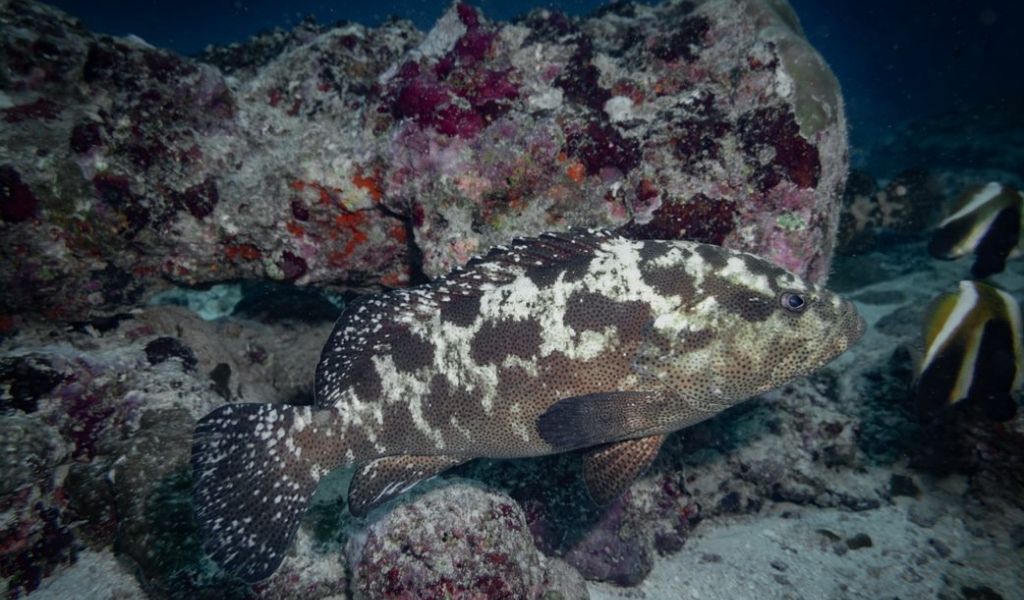
Maldives Introduces New Measures To Curb The Decline Of Grouper Species
Groupers are a diverse group of coral reef fish that are valued by divers and snorkelers due to their large size and magnificent colors which is also vital for reef health. However, the sad reality is that the capture of groupers for the live reef fish trade to South Asia is threatening their populations. Groupers are highly susceptible to overfishing. They are long-lived, take a long time to reproduce and they change sex as they grow. Crucially, they aggregate to breed in the same locations at predictable times of the month, making them easy targets for fishermen.
As a result, groupers across the world are globally threatened due to this trade and at least two of the species found in Maldives are listed as Vulnerable on the International Union for Conservation of Nature’s Red List.
Evidence collected by the Maldives Marine Research Institute (MMRI) - formerly known as the Marine Research Centre – and Blue Marine Foundation (BLUE) has shown that within just five years of the export fishery starting, groupers were already declining. In 2011, research by MMRI showed that 70% of groupers landed for the export trade were immature and their latest research shows that 90% of the highest valued grouper species landed are immature.
In recent years, many island nations like Fiji and Seychelles have started to take control by preventing the export of these valuable fish. At present, Maldives is the only country in the Indian Ocean still exporting live groupers – that is up until now with the introduction of the Grouper Fishery Management Plan.
The newly introduced plan which was published in December 2020 stipulates that it is illegal to fish, keep on board, store, transship, land, process, retain in a processing facility, export and attempt to export a total of 23 species of groupers below their size limits. These new measures are crucial to safeguard the livelihoods of over 700 grouper fishers who are active in 13 atolls and 31 islands across the country.
Nevertheless, the plan gives the Ministry one year to enforce and implement the size limits. So far, new minimum landing size limits have been introduced for Brown marbled grouper (60cm), Camouflage grouper (40cm), Squaretail coral grouper (40cm) and Roving coral grouper (42cm). The revised size limits of these four species are in some cases 20cm greater than those stipulated in the previous regulations.
In addition to this, the new plan the timeframe of protection for five spawning aggregation sites to a further ten years and clearly defines the activities that are prohibited in which all of these will come into effect upon the publication of the new regulation. Some of them namely include of fishing being restricted at these sites with exception of trolling. Diving, snorkeling and use of motored vehicles for water sports activities and the use of lights are also prohibited at these sites between the 23rd-3rd day of the lunar period. A total ban is imposed on the use of pressurized air, torches or lights, in association with gaffs for this fishery and the use of spears and gaffs to target grouper spawning aggregations.
Fisheries management plans have recently been prioritized within the framework of Maldives under the new Fisheries Act passed on September 2019. Until now, there were only two fisheries with management plans in the country – live bait and grouper. The new plan comes alongside other new fishery plans for reef fish, billfish, lobster, sea cucumber, marine aquarium fish and diamondback squid.